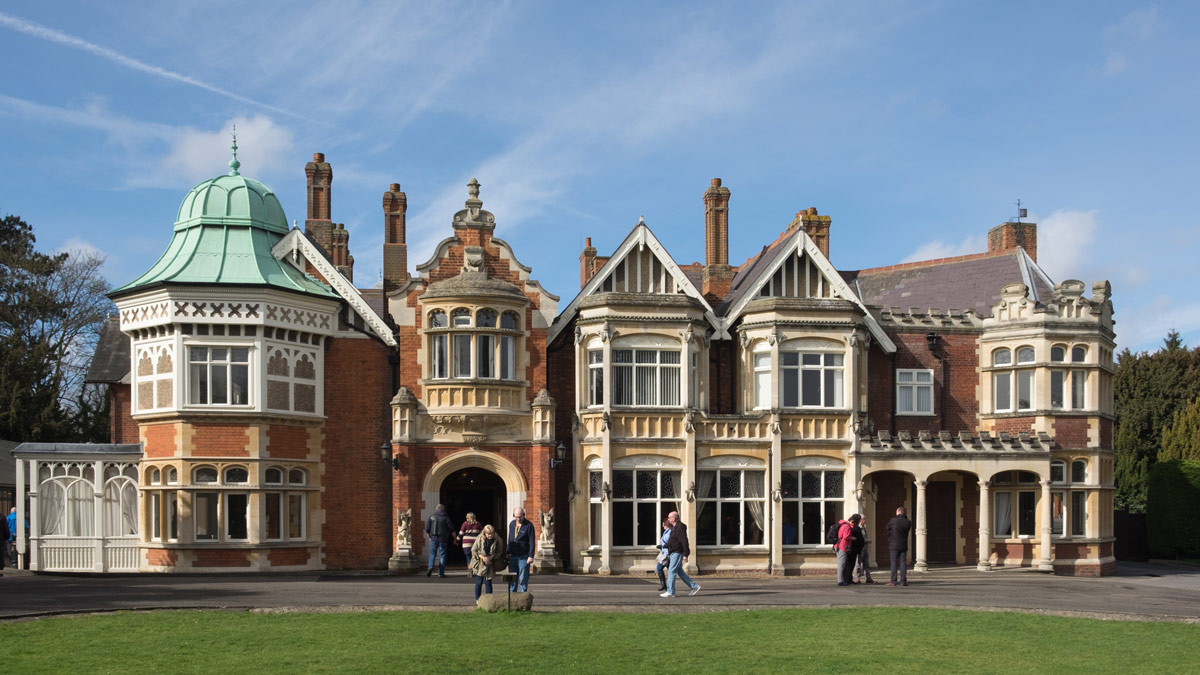
Is the solution really in the archives? Can we expect to find confessions or half-truths in the archives to support our thesis? Churchill had this disturbing sentence in his memoirs (see “8- Churchill, a recidivist?”), but does it refer to facts contained in the archives of the Second World War, both in England and in the United States? Or rather, to put it another way, would Churchill have made this half-admission if the clues and evidence were nowhere to be found? If he knew that no one would ever be able to prove that convoy SL 125 had been sacrificed… would he have needed to allude to it? Out of honesty? Out of concern for historical truth? It’s hard to believe, because Churchill concealed many other facts in the story of his life as a statesman.
This investigation will take us to different parts of the world, but the archival research will be mainly in London and Washington. In the US capital, we will snoop around the National Archives on Pennsylvania Avenue, where declassified US intelligence documents are kept. There we will look for clues, letters and coded messages relating to the events of late 1942. In New York, we will go to the Roosevelt Library, near Hyde Park. The former president’s notebooks and memos are open to the public. 79 boxes in all! Also available are the notes of General Clarck who secretly negotiated the landing of American troops with the leaders of the French resistance in North Africa. Do these documents mention convoy SL-125? If so, what can we learn? If not… why not?
We will of course go to London where some of the big secrets may lie. In various places in the British capital, we will search the archives of the SOE (Directorate of Special Operations), the War Office (former Ministry of Defence) and the Secret Intelligence Service, at Millbank on the banks of the Thames. At this last address, the documents of the famous MI6 (foreign espionage services) could well provide us with unpublished information on the tactics adopted in October 1942. We will interview the director of the War Office archives, successor to Stephen Wentworth Roskill, official historian of the Royal Navy and supporter of the ‘sacrificial convoy’ thesis.
One of the first archival files we will have to find and examine, if we are allowed to do so, will be that of the SL convoy command. Curiously, these operations were co-ordinated by a naval headquarters on board the ship « RMS Union-Edinburgh Castle ». The facilities and mooring on land were not suitable and throughout the war the SL convoys were coordinated from this old liner. So where are the RMS Union-Edinburgh Castle archives?
It is not in the British capital that we hope to make the best discoveries but rather in the centre of the country. We will try to obtain the necessary authorisations to access the mythical Bletchley Park estate made famous by the film Imitation Game (2014). A nerve centre for the deciphering of German and Japanese messages throughout the Second World War, Bletchley Park houses in its archives the millions of messages exchanged by the Axis troops during the conflict. This archive, which has remained secret until now, occupies eight complete rooms. The cards where the intercepted messages were noted are still locked in boxes. And in addition to these 2 to 3 million cards, Bletchley Park stores documents of all kinds, including those sent by Allied spies. U-boat plans, positions of Africakorps troops or data on the organisation of the German army, thousands of historical documents lie dormant at Bletchley Park…
We will also have to delve into the many secrets of the ‘London Controlling Section‘ (LCS for short), a top-secret British organisation which, during the Second World War, was responsible for devising strategic plans for deception and coordinating their execution (battles, raids, commando operations, etc.). The LCS was run jointly by the heads of MI6, MI5, the XX Committee and the PWE, the intelligence services of the three arms. It was created by Winston Churchill in April 1941 and its existence was not officially recognised until 1969. Perhaps we should go and consult the archives or interview the families of its members, including its leaders (Oliver Stanley, head of the LCS until June 1942 and Lieutenant-Colonel John Henry Bevan, MC, head of the LCS from June 1942).
In his book “La Guerre des magiciens – L’intoxication alliée 1939-1944”, Jean Deuve explains that « It is Churchill, moved by his past experience, his pronounced taste for everything non-conformist and his lively imagination, who concretises the LCS and puts it on track by giving it as first leaders personal friends. He will never cease to take a close interest in the LCS. He will provide it with ideas and will himself participate in its subterfuges ».

